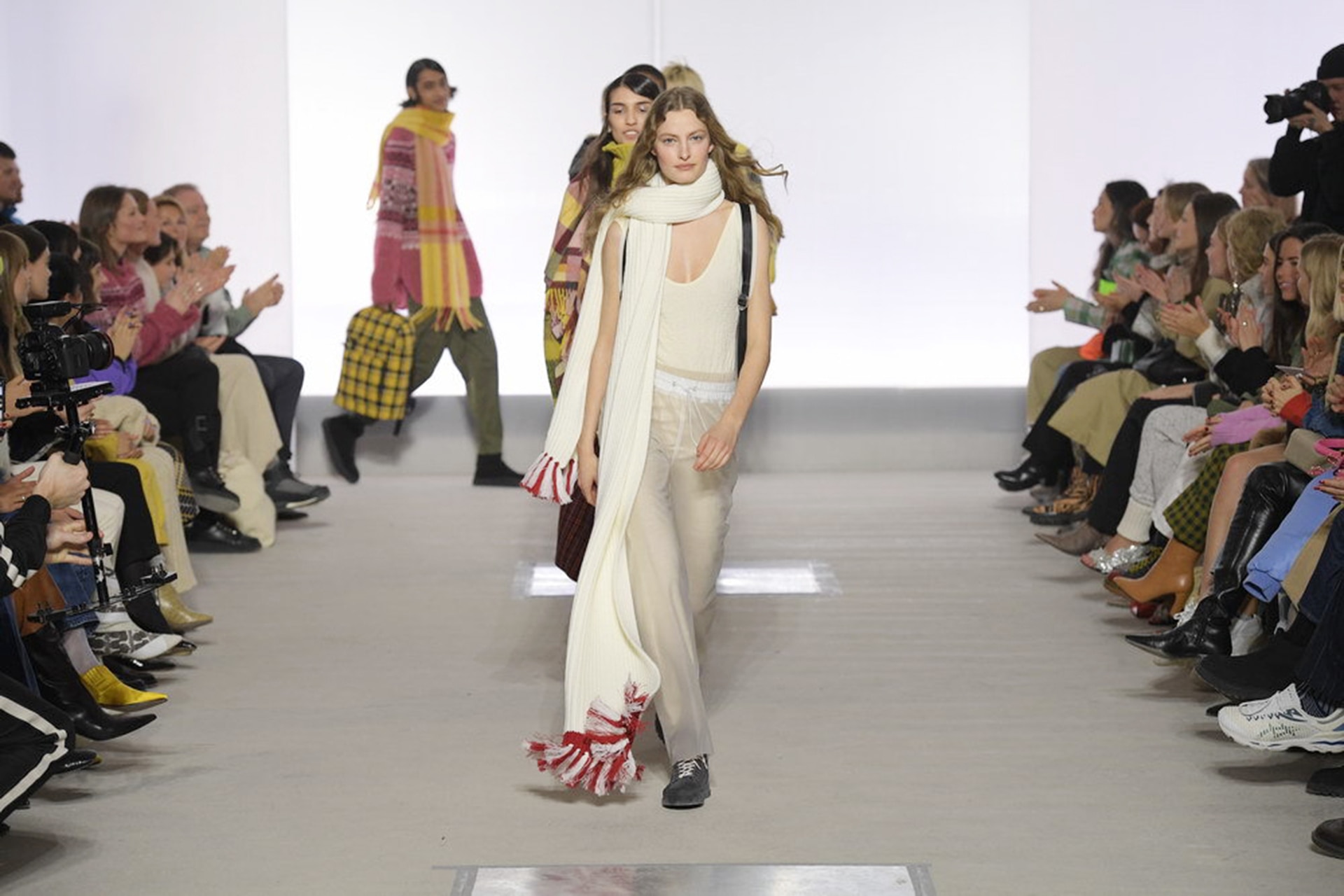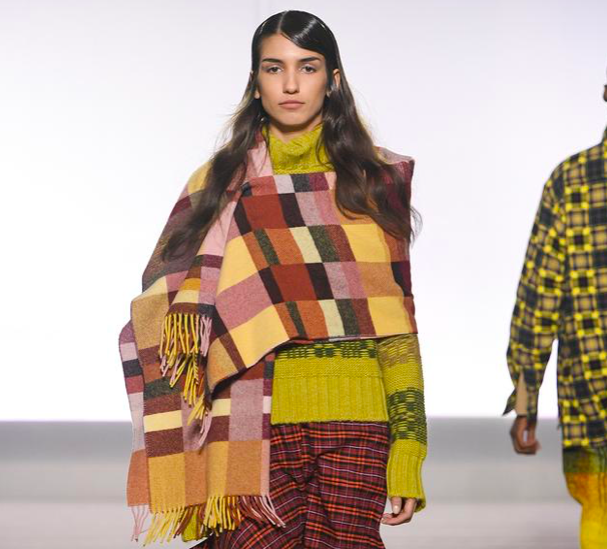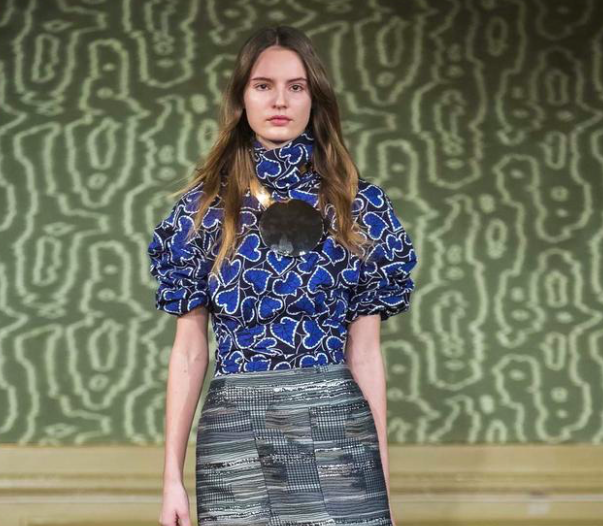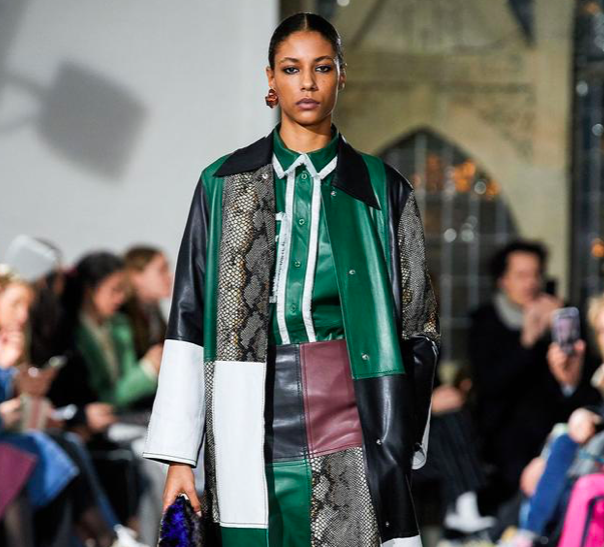It came as a surprise to many when Stockholm Fashion week was canned earlier this year by the Swedish Fashion council, after concerns of its impact on the environment were brought to light.

But luckily, fashion fans still had Copenhagen Fashion Week (CPHFW) to look forward to on the second week of August, as it became the last standing Scandinavia fashion week for the SS20 season.
Danish designers have always held their own in the international fashion scene with their take on playfully minimalistic designs – and now they are leading the fashion world with their drive for sustainability and ethical practices.
The Swedish Fashion Council expressed its desire to move away from the traditional fashion week design, calling out sustainability concerns as its prime motivator for the decision.
Highlighting this need for change, Jennie Rosen, CEO of the Swedish Fashion Council said in an interview with i-D;
“If the fashion industry is to survive with the planet, we must oversee volumes and develop new business models.”
Setting this example for the fashion community was no easy feat, but as Rosen acknowledged – it was a deeply considered decision.
“We need to put the past to rest and to stimulate the development of a platform that is relevant for today’s fashion industry … [and] support brands in their development of next-generation fashion experiences. By doing this we can adapt to new demands, reach sustainability goals and be able to set new standards for fashion.”
The global conversation of sustainable and ethical sourcing of materials and production has been moving to the top of the world fashion agenda, with many consumers making the conscious shift from fast fashion.
Early in 2019, CPHFW formed a sustainable advisory board of international fashion representatives – and began putting into place a strategy focusing on four of the United Nations Sustainable Development Goals.
This resulted in many changes to this years fashion week, including a ban of single-use plastic bottles and a guide for producing more ethical and responsible fashion shows.
Cecilie Thorsmark CPHFW CEO, stated in an interview with Vogue earlier this week that they will be revealing a three-year plan later this year that will dedicate their platform to accelerating sustainable development of the fashion industry by upholding strict standards for brands that wish to showcase at Copenhagen Fashion Week.
“While we are not in a position to directly influence brands’ every-day decision making…We wish to use our role and our voice to make sustainability more attractive and are dedicated to speeding up the industry’s transition.”
To some these may seem like small steps to take, but it feeds directly into the city of Copenhagen’s grander scheme of becoming a carbon neutral city by 2025. In other words, Copenhagen is pulling all the stops to become a more sustainable and ethical city in all aspects – including fashion.
With that in mind, here are some of the Scandinavian brands who spearheaded Copenhagen Fashion Week with a greener fashion movement in mind.
Holzweiler:

Family-run Oslo based brand Holzweiler has built a sturdy sustainability reputation since it first launched in 2012. Loved for its fun designs, it is a powerhouse for eliminating production waste and recycling materials.
In an interview with Vogue before the show creative director Suzanne stated they had very clear goals.
“Our goal is to be able to track all our garments down to the fibres and components such as buttons and zippers – which we avoid using unless they fulfil a function – and map out our whole production.”
They have even gone as far as to host coastal clean-up events – I bet you can’t name another brand doing that!
Rodebjer:

Since its establishment in 1999, Rodebjer returned to the prestigious event for the third time this season. Known for its signature lose pant suits, seen on celebrities such as Meryl Streep and Victoria, Crown Princess of Sweden – Designer Carin Rodebjer has mastered the combination of polished, yet laid-back clothing. On the topic of the environment, Rodebjer has always been on the sustainable path to fashion design.
“When I started my business 20 years ago I took a sustainable approach, even though most people thought I was being naive. I decided at that point to never work with fur or use leather in clothes… When it comes to fabrics we use a lot of organic and recycled materials and avoid garment washes and bleaches where possible”
Stand Studio:

It was designer Nellie Kammras’ label’s second showing at CPHFW this season, after her debut last year which saw her pull in a line of international stockists, including Barney’s. This years collection floated through the idea of endless city summer and seaside resort living – with marine rope detail and linen fringe oozing feelings of summer. While still a young label, Stand focuses on creating high quality garments designed for a long lifespan in an effort to reduce excessive consumption of fashion.
In an interview with Vogue, designer Nellie Kammras’ laid out her plans for reducing her impact on the environment.
“For the spring/summer 2020 collection we are offering a capsule collection with material made from pineapple leaves, for example, and for autumn/winter ’19/’20 we will be offering faux furs made from recycled plastics from the sea as well as fabrics made from corn.”
Subscribe to FIB’s newsletter for your weekly dose of music, fashion and pop culture news!







